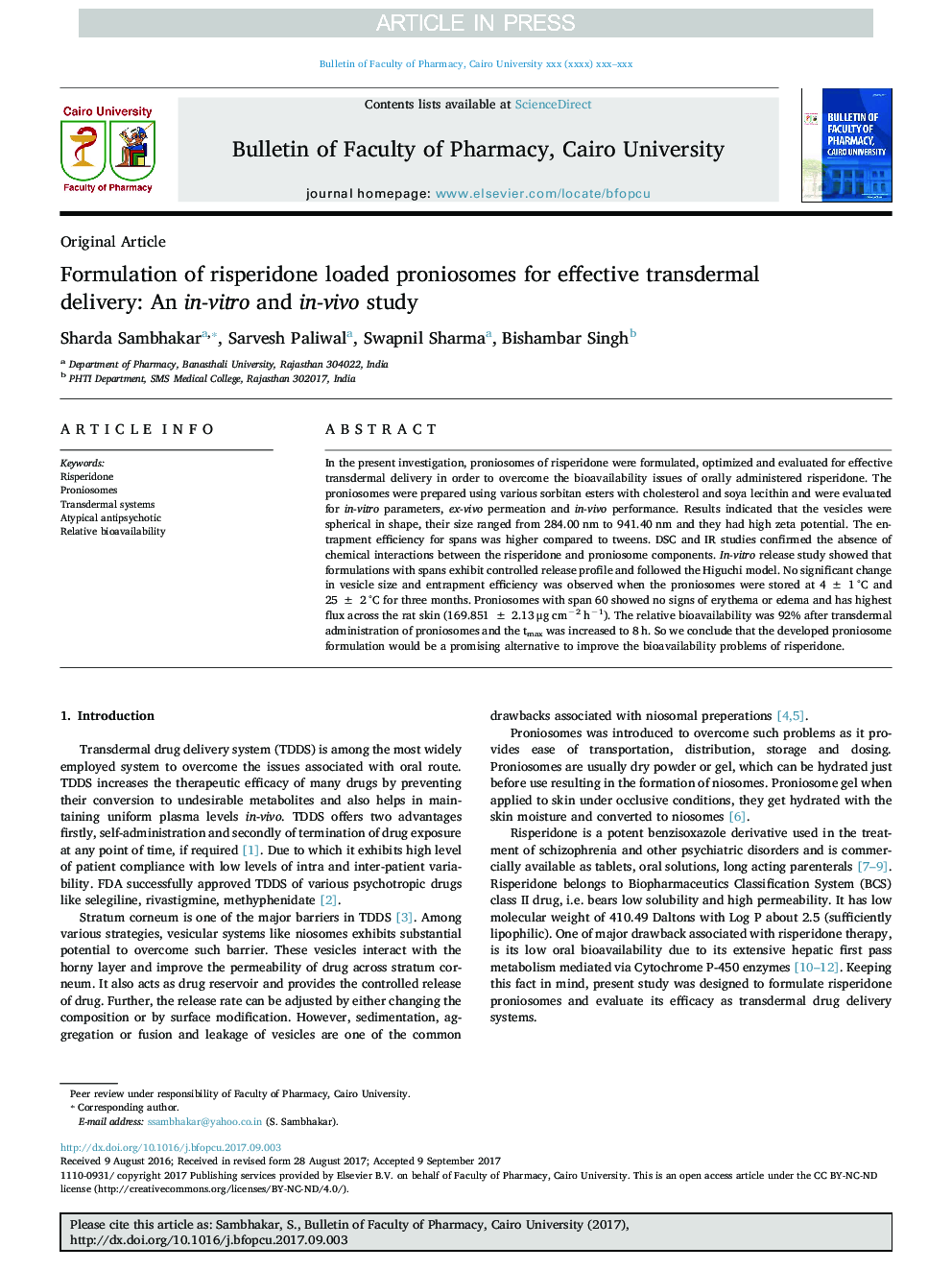| Article ID | Journal | Published Year | Pages | File Type |
|---|---|---|---|---|
| 8508989 | Bulletin of Faculty of Pharmacy, Cairo University | 2017 | 9 Pages |
Abstract
In the present investigation, proniosomes of risperidone were formulated, optimized and evaluated for effective transdermal delivery in order to overcome the bioavailability issues of orally administered risperidone. The proniosomes were prepared using various sorbitan esters with cholesterol and soya lecithin and were evaluated for in-vitro parameters, ex-vivo permeation and in-vivo performance. Results indicated that the vesicles were spherical in shape, their size ranged from 284.00 nm to 941.40 nm and they had high zeta potential. The entrapment efficiency for spans was higher compared to tweens. DSC and IR studies confirmed the absence of chemical interactions between the risperidone and proniosome components. In-vitro release study showed that formulations with spans exhibit controlled release profile and followed the Higuchi model. No significant change in vesicle size and entrapment efficiency was observed when the proniosomes were stored at 4 ± 1 °C and 25 ± 2 °C for three months. Proniosomes with span 60 showed no signs of erythema or edema and has highest flux across the rat skin (169.851 ± 2.13 μg cmâ2 hâ1). The relative bioavailability was 92% after transdermal administration of proniosomes and the tmax was increased to 8 h. So we conclude that the developed proniosome formulation would be a promising alternative to improve the bioavailability problems of risperidone.
Related Topics
Health Sciences
Pharmacology, Toxicology and Pharmaceutical Science
Drug Discovery
Authors
Sharda Sambhakar, Sarvesh Paliwal, Swapnil Sharma, Bishambar Singh,
